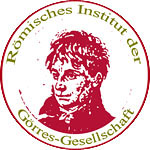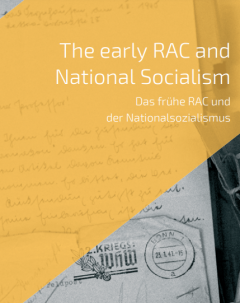The "Reallexikon für Antike und Christentum" and National Socialism
As is well known, the Nazis tried to instrumentalise ongoing encyclopaedia companies. The best-known example is the "Handwörterbuch des deutschen Aberglaubens" (Hand Dictionary of German Superstition) (1927-1942), which was ransacked in the 1930s and is nevertheless in every library because of its wealth of material. The Paderborn priest Theodor Klauser, who was at the Campo Santo Teutonico from 1925-1927 and 1931-1934, was commissioned as early as 1935 by his Bonn teacher Franz-Joseph Dölger to compile a dictionary of antiquity and Christianity.
The first fascicle appeared in 1941, but the war and the impossible contact with the Dutch collaborators stopped the enterprise, which could only be taken up again after the war. In a few years, the encyclopaedia will be completed with over 30 volumes. To mark this occasion, a conference on "The Early RAC and National Socialism" will be held at the Dölger Institute in Bonn on 21/22 June 2022. Speakers include Christian Hornung, Stefan Rebenich, Oliver Arnhold, Sible de Blaauw, Guy Stroumsa and Wolfram Kinzig.
The actual reason, however, is the observation that although the first two volumes were published after the war, they contain a lot of old material. Some of the articles, which were already written in the 1940s and are clearly ideological in places, are reprinted. This is indeed highly remarkable, also because Klauser himself is above suspicion of any proximity to the Nazis. He condemned, for example, the rapprochement of the Abbot of Maria Laach with the Nazis in 1933. In any case, the conference will be exciting in this respect as well.
For Klauser see Personenlexikon zur Christlichen Archäologie
- Details
- Written by: Stefan Heid
- Category: From around the world
 Römisches Institut der Görres-Gesellschaft
Römisches Institut der Görres-Gesellschaft







